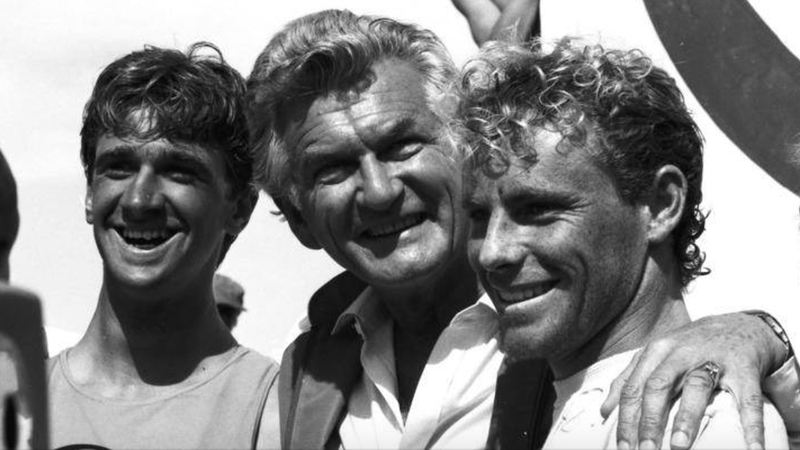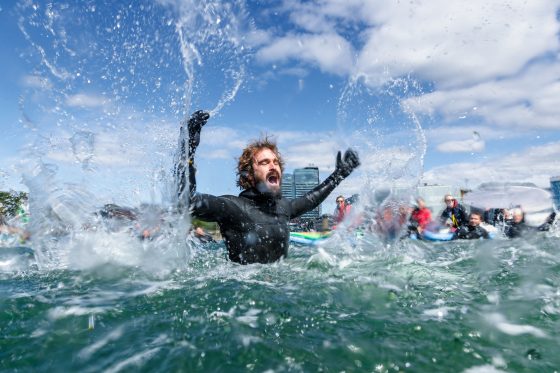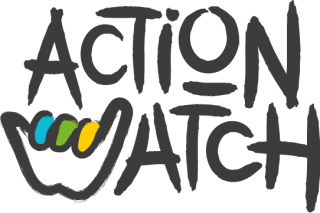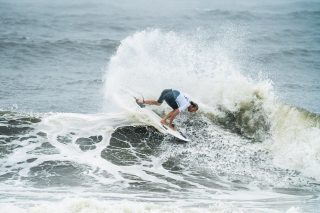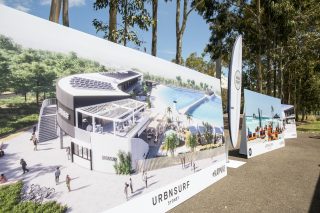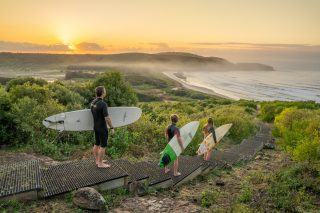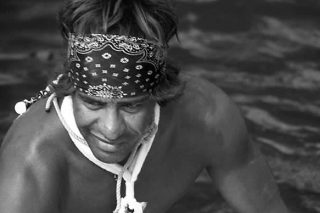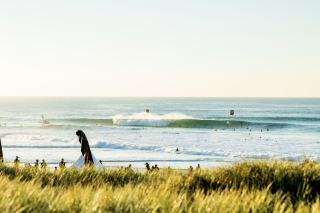ASB MAGAZINE: So Robert James Lee Hawke has left us, and with perfect dramatic timing. Just two days out from a federal election, his obituaries have flooded the media and prevented his old foes from gaining any last-minute traction. So very Bob.
Hawke was a reformer and a conviction politician, the likes of which we rarely see anymore, which is why we mourn him: his death represents the passing of an era, as much as of a human being. But he was also a populist, and a man who loved adulation. He got plenty of it: his approval numbers as PM are unlikely ever to be eclipsed.
As with the death of any public figure, people are re-framing Hawke’s importance in terms of what matters to them: the ALP are emphasising his record of economic reform, because that suits their narrative. The media are all about his larrikinism. Bill Hayden, Keating, Blanche, Hazel’s family, his adult children; all of them knew a different man.
Surfing has its own version of Bob, one that sits slightly at odds with the wider picture.
When Bob met Tom Carroll at Bondi in 1984, both men’s careers were riding high. Carroll was world champ, and Bob was enjoying a cult status that improbably traced back to Australia winning a yacht race for rich Americans: the PM knew the value of associating with sporting stars.
Shortly after their brief chat, Carroll made the decision to boycott the South African events (Martin Potter, Cheyne Horan and Tom Curren followed his lead) in protest against apartheid. In the process, he risked his world title standing and potentially even litigation. His major sponsor, Instinct, who had South African owners, summarily dropped him.
Hawke made contact: apartheid was an issue on which he had built his reputation in the trade unions. He offered to back Carroll legally, but more importantly he gave a young athlete, feeling his way in public through an issue of private conscience, the support of the most famous, and probably the most pugnacious, man in Australia.
Hawke later spoke at a testimonial dinner in TC’s honour, and drew attention to all that Tom had risked in taking a principled stand. “There is no better example in the history of Australian sport,” he said, “where a champion has been prepared to put principles so manifestly in front of his or her own interests.”
And years on from that, Hawke introduced Tom to Nelson Mandela when the great man was making an Australian visit, and took pains to explain to Mandela what Tom had done in support of him.
Neo-cons and socialists may argue deep into the night over whether the generous unemployment benefits of the 80s – AKA the Bob Hawke Surf Team – were responsible for producing our greatest generation of surfers. Nick Carroll has elsewhere mounted exactly this argument. It’s the sort of territory Derek Reilly covered when, in 2017, he had the idea of sitting down once a week with Bob in his loungeroom to smoke cigars and talk about life: the resulting book, Wednesdays With Bob, was a resounding success.
In an Instagram post eulogising Hawke, TC said that “the greatest honour of all was to feel supported by Bob when I decided to boycott professional surfing events held in apartheid South Africa”.
Surfing and politics share an image problem: the noisy stuff at the surface tends to hide deeper meanings. There have been – and there still are – times in both fields when good people go it alone because they believe in something. Let’s hope that, among the America’s Cup and beer-drinking references, the tale of Bob and Tom stands for something real.
Words: Jock Serong
